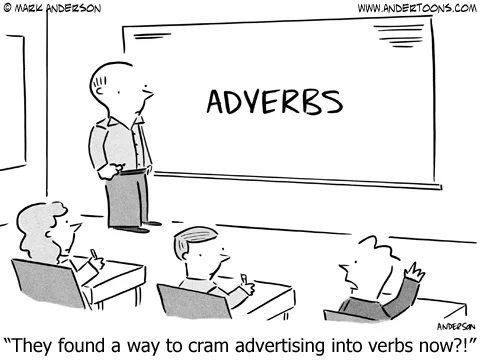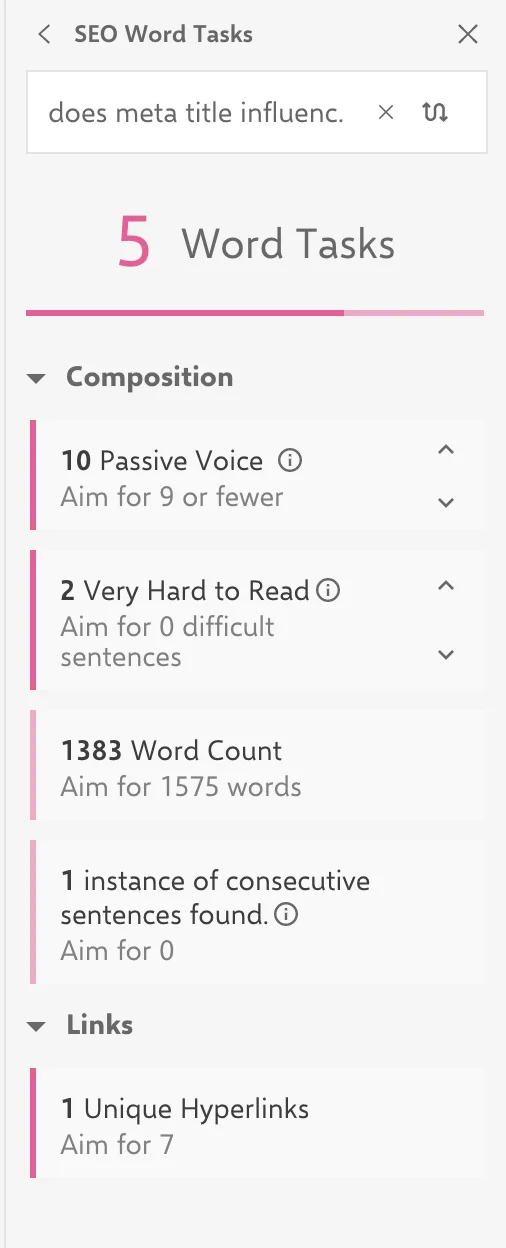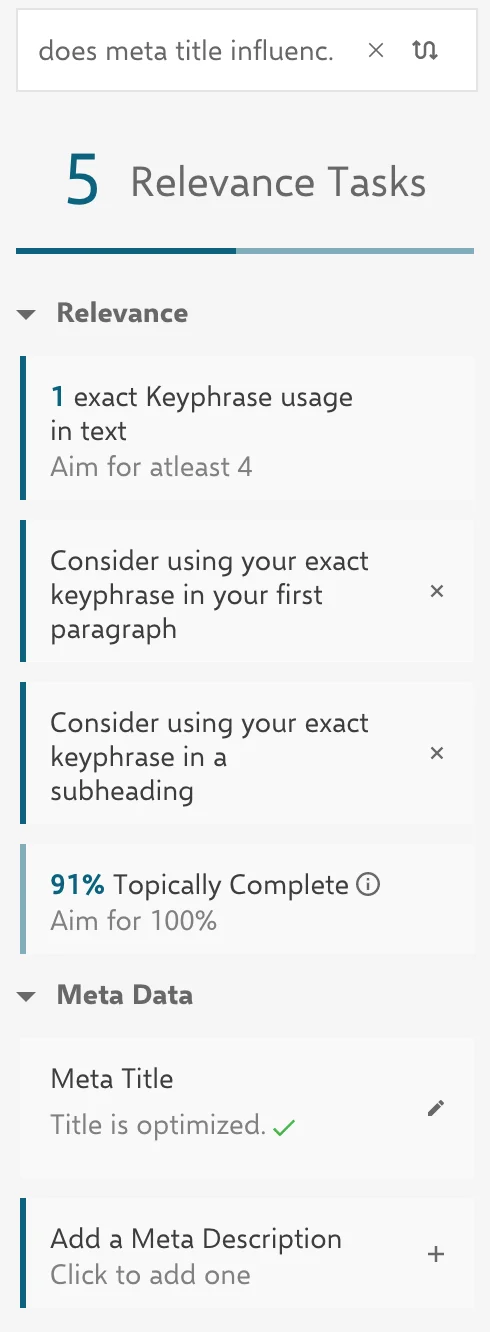Does Google care if I use adverbs? Short answer: Google doesn’t care. It’s great writing with a high degree of readability that is ultimately what Google is looking for when ranking sites.
However, the over-use of adverbs can have a negative impact on search engine ranking if they affect the readability of your content.
Adverbs Affect Readability
Readability is the ease in which your target audience is able to digest written text.


Readability is a very important factor in where your site ranks. In fact, you can have the correct formatting, meta title optimized, key phrase usage perfect, and are topically correct. However, if your audience is unable to comprehend what you’ve written, Google will give your site a poor ranking.
For example, a searcher types in the key phrase “what to bring on a camping trip.” They are expecting an explanation that answers their question. The site will most likely provide pictures of the items one should bring. It will probably have links to where one can purchase some of the items.
If the first link the searcher clicks on is written in Spanish. Then the searcher quickly exits the page and looks for one in English. Even though they were expecting image-heavy results, the searcher still wants the content in a language they are able to read.
Google tracks these exit points.
I know you’re thinking this is an extreme example. We’re just talking about adverbs’ effect on SEO.
Here’s why adverbs matter. They are a sign of sloppy writing. Your goal is for your writing style to invite your reader in, capture their attention, and hold it as long as possible. This has a positive influence on your SEO.
Readers hang out longer on your site which Google rewards.
More importantly, though, searchers will share your site. This organic link sharing is very valuable. You get more eyes on your site. Google takes notice and deems you an authority on your subject.
Besides the use of Adverbs, Poor Grammar Affects Your SEO.
Another factor in readability is the proper use of grammar. A site that has typos, poor punctuation and misuse of words will give a bad impression of the author. They are not deemed an authority on the subject matter if they are thought to be illiterate.
The reader doesn’t want to plow through typos in the content to find their answer. Google looks for this. It will punish the site by ranking it lower. Keep in mind that this will happen even if the information is presented is correct with high authority.
This is a pitfall that occurs when someone is writing in a language that is not their primary one.
There is a Content Writing Tool That can Help With Adverbs and Readability.
I’ve been developing a tool to help content writers optimize their SEO results for the highest-ranking pages possible. It’s called INK.


INK is a super helpful tool that checks for the overuse of adverbs. This is a screenshot from INK showing that I’ve used too many adverbs in this article. I guess I need to follow my own advice and do a bit of editing.
Below is a screenshot of the other readability factors that INK checks for.


While I’ve been working on this article, INK has been running in the background. It ensures that I’m writing on topic as possible to compete with my competition.
In the checklist above, it notes that I have used passive voice too much. I want to sound like an authority on this subject, so I’ll make the corrections.
INK tells me that I have two sentences that are hard to read. I often like to combine subjects into one sentence. I bet I’ve done that this time. Sentences should be short and concise.
Word count is so important in SEO ranking. If your competition has 2000 words on a subject but you’ve only written 500, this is an issue of perceived authority.


INK reminds me that I’ve optimized my meta title but I haven’t completed my meta description yet.
Also, I need to work on my key phrase usage. I haven’t used it enough throughout this text.
All of these items will work together to help make this article rank at the top of the search engine optimization page.
INK is free to use. Download it today and see just how much higher your content can rank.


Comments (0)
Least Recent